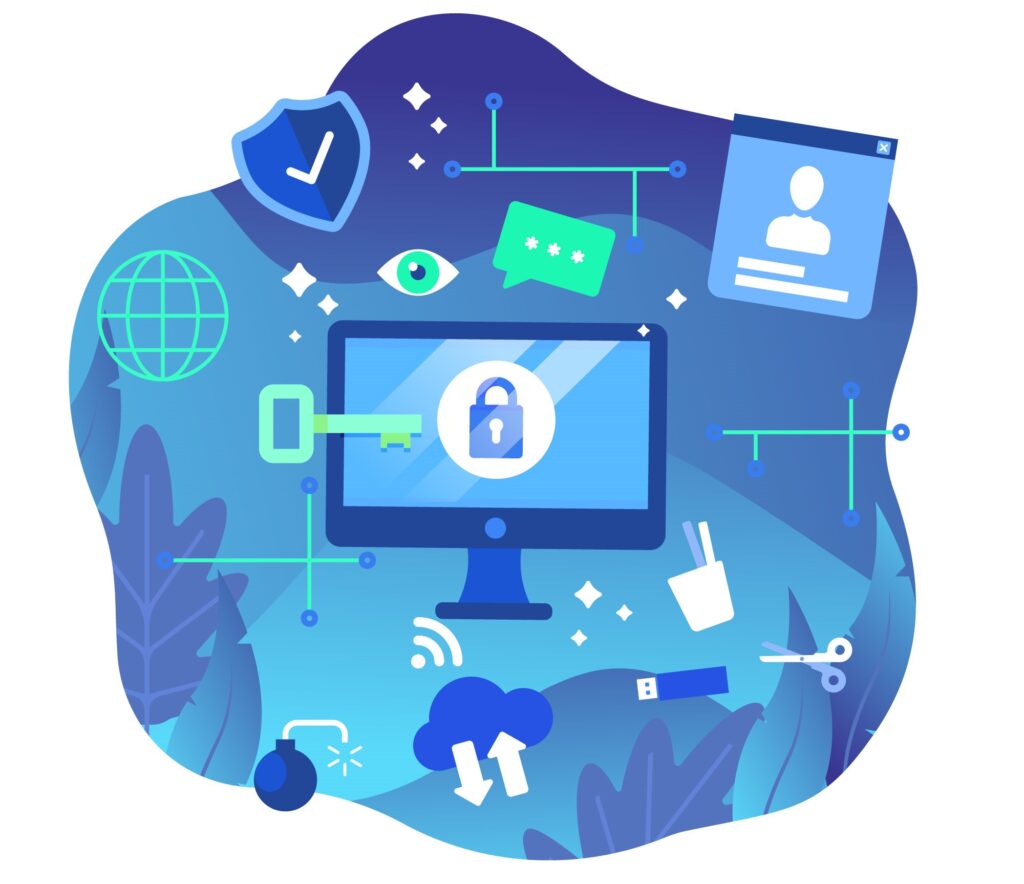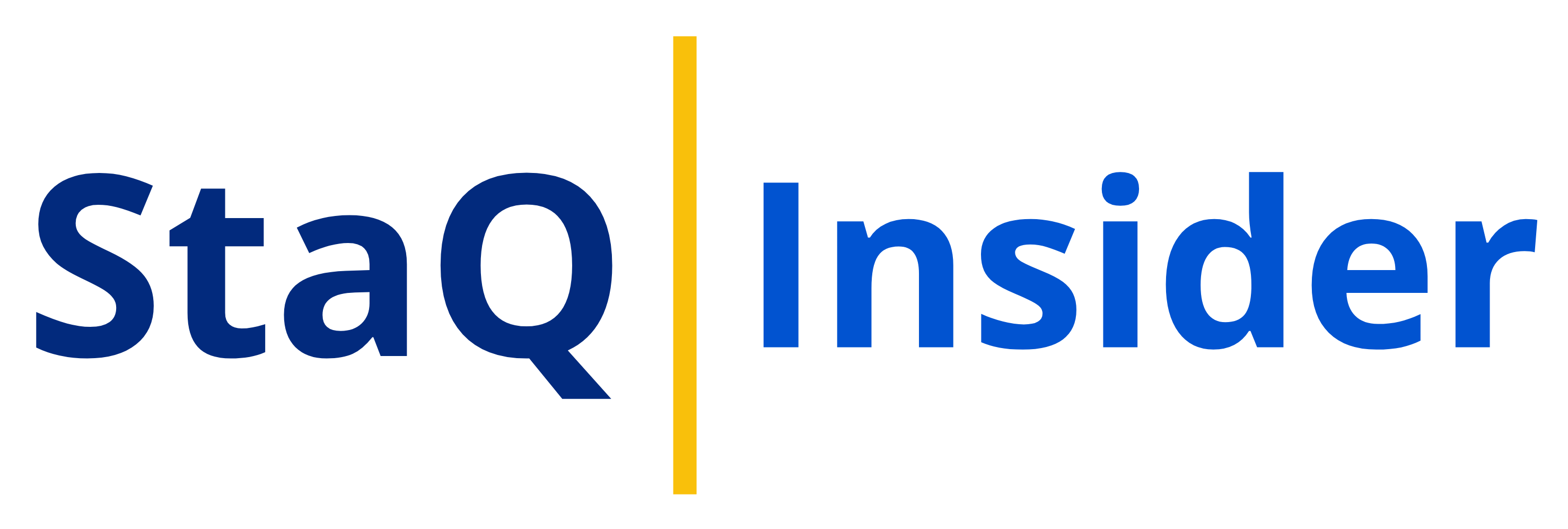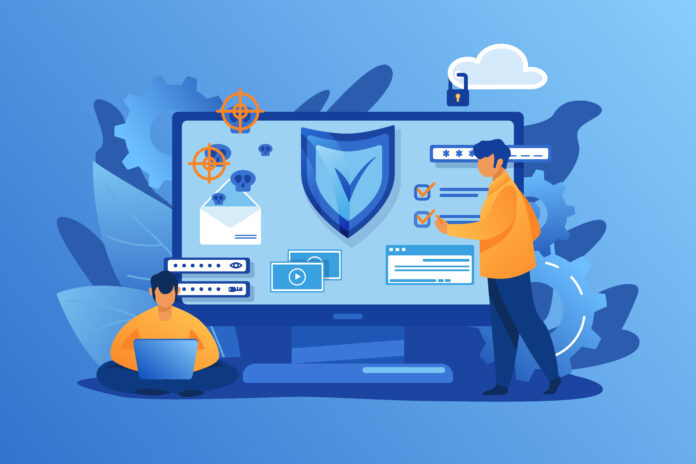In a digital age where cyber threats are a constant concern, businesses of all sizes must prioritize robust cybersecurity measures to protect their critical assets, sensitive data, and hard-earned reputations. Implementing the right cybersecurity software can be the difference between weathering a storm or succumbing to a devastating breach. Let’s dive in!
What Is Cybersecurity?
Cybersecurity is the practice of protecting digital systems, networks, and data from unauthorized access, misuse, and other cyber threats. It involves a comprehensive set of techniques, technologies, and processes designed to safeguard information and assets in the digital realm.
Cybersecurity is crucial for protecting sensitive data, financial security, reputation, national security, intellectual property, privacy, and global stability. It is essential for businesses, governments, and individuals in today’s digital age, where cyber threats like malware, ransomware, phishing, and identity theft pose significant risks.
Cybersecurity involves various practices, including:
-
Network Security
-
Application Security
-
Information Security
-
Operational Security
-
Disaster Recovery
-
Business Continuity
-
End-user Education
By addressing these various aspects of cybersecurity, individuals, and organizations can better protect themselves from the growing and ever-evolving cyber threats that exist in today’s digital landscape.
How Important Is Cybersecurity Today?
Cybersecurity is immensely important in the modern world, with its significance being evident in several key areas:
-
For humans, cybersecurity is crucial to safeguard personal data, financial information, and digital identities from cybercriminals. With the increasing reliance on digital devices and connected systems, the risk of cyberattacks targeting individuals is on the rise. Cybersecurity professionals play a vital role in protecting people from phishing scams, digital identity theft, and other forms of cybercrime.
-
For businesses, cybersecurity is a critical aspect of risk management and business continuity. As companies increasingly rely on digital systems for data storage, processing, and communication, the risk of data breaches, cyberattacks, and system failures becomes more pronounced. Implementing robust cybersecurity measures helps protect sensitive business information, maintain customer trust, and ensure regulatory compliance.
-
For governments, cybersecurity is a matter of national security. Critical infrastructure, such as power grids, water supply networks, and public transportation systems, are increasingly becoming automated and connected to the internet, making them vulnerable to cyberattacks.
Cybersecurity plays a crucial role in protecting these systems from potential threats, ensuring the continuity of essential services, and safeguarding national security.
What is CyberSecurity Software?
CyberSecurity Software refers to the various software programs and applications designed to protect computer systems, networks, and digital information from unauthorized access, cyber-attacks, and other security threats. The primary goal of CyberSecurity Software is to safeguard an organization’s or individual’s digital assets and ensure the confidentiality, integrity, and availability of their data.
Some common types of CyberSecurity Software include:
-
Antivirus Software:
Protects against malicious software like viruses, worms, and Trojans by scanning and removing them from your system.
-
Firewalls:
Monitors and controls incoming and outgoing network traffic based on predetermined security rules, protecting against unauthorized access and cyber threats.
-
Intrusion Detection Systems (IDS):
Monitors network or system activities for malicious activities or policy violations and alerts the system or network administrator.
-
Intrusion Prevention Systems (IPS):
Similar to IDS, but also capable of taking automated actions to block or prevent detected threats.
-
Endpoint Protection:
Provides security for endpoints such as laptops, desktops, smartphones, and tablets by monitoring processes, files, and network activities to prevent malware infections.
-
Data Loss Prevention (DLP):
Prevents unauthorized users from accessing or sharing sensitive data by monitoring, detecting, and blocking data breaches.
-
Security Information and Event Management (SIEM):
Collects and analyzes security data from various sources to provide real-time insights into security threats and incidents.
-
Vulnerability Assessment Tools:
Scans systems or networks to identify and prioritize vulnerabilities that could be exploited by attackers.
-
Penetration Testing Tools:
Simulate cyber attacks to identify weaknesses in a system’s security posture.
-
Encryption Software:
Protects sensitive data by converting it into ciphertext, making it unreadable without the appropriate decryption key.
-
Identity and Access Management (IAM):
Manages user identities and permissions to ensure that only authorized users have access to resources and data.
-
Security Orchestration, Automation, and Response (SOAR):
Streamlines security operations by integrating security tools, automating repetitive tasks, and orchestrating incident response processes.

Why CyberSecurity Software/Tools are Important for Businesses?
Cybersecurity software tools are essential for businesses in the modern digital landscape for several key reasons:
-
Protection against Cyber Threats:
Businesses face a wide range of cyber threats, including malware, ransomware, phishing attacks, and data breaches. Cybersecurity tools help detect, prevent, and respond to these threats, safeguarding sensitive data, systems, and infrastructure.
-
Compliance and Regulations:
Many industries have specific regulations and standards (e.g., GDPR, HIPAA, PCI DSS) that require businesses to implement certain cybersecurity measures. Cybersecurity tools assist in meeting these compliance requirements and avoiding costly fines or legal consequences.
-
Data and Asset Protection:
Businesses today rely heavily on digital data and assets, such as customer information, financial records, intellectual property, and proprietary software. Cybersecurity tools help protect these valuable assets from unauthorized access, theft, or corruption.
-
Business Continuity:
Cyber attacks can disrupt business operations, leading to downtime, loss of productivity, and reputational damage. Cybersecurity tools, such as backup and disaster recovery solutions, help ensure business continuity and the ability to quickly recover from incidents.
-
Risk Mitigation:
Cybersecurity tools provide visibility into potential vulnerabilities and risks, allowing businesses to proactively identify and mitigate them before they can be exploited by cyber criminals.
-
Cost Savings:
The financial impact of a successful cyber attack can be substantial, including the costs of incident response, data recovery, regulatory fines, and lost revenue. Investing in cybersecurity tools can help businesses avoid these costly consequences.
-
Reputation and Trust:
Businesses that prioritize cybersecurity and demonstrate their commitment to protecting customer data and assets are more likely to earn the trust of their clients, partners, and the public, which can positively impact their brand and reputation.
-
Building customer trust:
Implementing strong cybersecurity measures can help build customer trust and enhance brand reputation. Customers are more likely to do business with companies that prioritise their data security
-
Endpoint protection:
Endpoint protection tools protect individual devices (such as desktops, laptops, and smartphones) from malware, unauthorized access, and data breaches.
-
Security incident response:
Incident response tools and techniques involve analyzing, containing, and recovering from security incidents. This includes investigation, containment, eradication, and recovery processes to minimize the impact of a security breach.
10 Best (all-in-one) Cybersecurity Software Every Business Needs
Here are 10 of the best all-in-one cybersecurity software solutions that businesses should consider to safeguard their operations:
-
Norton 360:
Norton 360 is a comprehensive cybersecurity solution that provides real-time protection against viruses, malware, phishing attacks, and other online threats. It also includes a secure VPN for online privacy, a password manager for maintaining strong credentials, and cloud backup solutions to keep your data safe.
-
Malwarebytes:
Malwarebytes is a malware and spyware scanner that provides robust protection against various malware types and online threats. It also offers multi-device support, a personal firewall, secure browsing, and a password manager.
-
McAfee:
McAfee is a comprehensive protection suite that covers a spectrum from basic antivirus scanning to advanced web protection, firewall, and even identity theft protection. It offers robust protection against various malware types and online threats.
-
Webroot:
Webroot is a cloud-based cybersecurity solution designed to safeguard businesses against various types of cyber threats. It provides sophisticated prediction, detection, prevention, and protection against malware, ransomware, and other infections.
-
Bitdefender Total Security:
Bitdefender Total Security is a complete cybersecurity solution that provides real-time protection against viruses, malware, phishing attacks, and other online threats. It also includes features like a secure VPN for online privacy, a password manager for maintaining strong credentials, and cloud backup solutions to keep your data safe.
-
Perimeter 81:
Perimeter 81 is a cloud-based network security solution that provides secure access to corporate resources for remote and distributed workforces. It offers features like a secure VPN for online privacy, a password manager for maintaining strong credentials, and cloud backup solutions to keep your data safe.
-
Mimecast:
Mimecast is an email security and compliance platform that provides robust protection against phishing attacks, spam, and other email-borne threats. It also includes features like data loss prevention, archiving, and continuity.
-
Intruder:
Intruder is a cloud-based vulnerability scanner that provides continuous monitoring and assessment of your organization’s attack surface. It offers features like automated threat detection, thorough security auditing capabilities, and intrusion detection systems.
-
Snort:
Snort is an open-source network intrusion detection and prevention system that provides real-time traffic analysis and detection of various types of network intrusions. It also offers features like intrusion detection systems, incident response mechanisms, and the ability to effectively manage security incidents across various operating systems with detailed insights.
-
SentinelOne:
SentinelOne is an AI-driven cybersecurity solution designed for businesses of all sizes. It offers features such as next-generation antivirus, endpoint detection and response (EDR), and active threat hunting. It also has a powerful rollback feature, allowing businesses to recover from ransomware attacks quickly.
These cybersecurity software tools offer a range of features and capabilities that are essential for businesses to safeguard their operations against various types of cyber threats. By implementing these tools, businesses can enhance their overall security posture, protect their valuable data and assets, and maintain their reputation in the face of growing cyber threats.
How to Ensure you Choose the Right CyberSecurity Software?
To ensure you choose the right cybersecurity software for your company, it is essential to follow a structured approach that aligns with your organization’s needs and goals. Here are the key steps outlined in the provided write-up from LinkedIn:
-
Understand Your Current Situation and Desired Outcomes:
Before investing in any cybersecurity tool, it is crucial to have a clear understanding of your organization’s current risks, vulnerabilities, and desired security outcomes. Identify the main risks you face, compliance requirements, and the specific security standards and policies that are relevant to your business.
-
Select a Compatible Security Standard and Security Policy:
Find a security standard and policy that aligns with your company’s needs and start implementing them step by step. Design your Security Operations Center (SOC) to monitor these standards and policies effectively.
-
Design Your SOC with Security Policy and Standards:
Having a SOC is not enough; you need to establish robust security policies and standards first. Once you have these in place, design your SOC to align with them and ensure effective monitoring and response capabilities.
-
Evaluate Cybersecurity Tools Based on Your Needs:
Once you have a clear understanding of your requirements, start looking for cybersecurity tools that can meet them. Consider various types of tools such as antivirus, firewall, encryption, backup, VPN, etc. Compare the features, benefits, costs, compatibility, reliability, reputation, and support of different options.
-
Use Online Reviews, Recommendations, and Demos:
To evaluate cybersecurity tools effectively, leverage online reviews, recommendations, and demos. These resources can provide insights into the performance, usability, and effectiveness of different cybersecurity solutions. Additionally, consider the reputation and support provided by vendors and providers.
By following these steps, you can make informed decisions when selecting cybersecurity software for your company. It is crucial to align your choice of tools with your organization’s specific needs, security standards, and policies to ensure comprehensive protection against cyber threats.




